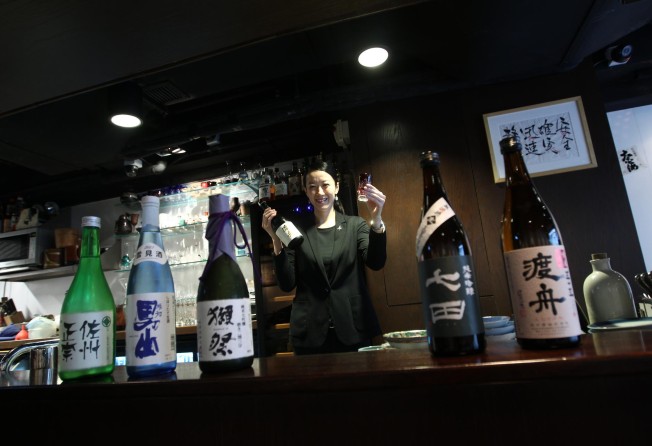Sake sensei
Ayuchi Momose opened her bar to share her expertise of rice wine. She talks to Euan McKirdy

What made you decide to become a sommelier? How long have you been one?
I have been doing the sommelier job for around 10 years, and I chose to do this simply because I love sake and I love Japanese cuisine. I lived in New York from 1998 to 2010, and moving abroad at such a young age - I was 19 or 20 - [gave me] a very different view of Japanese cuisine and sake. I don't think I would be doing this if I'd stayed in Japan.
Did you study formally?
Yes, I'm a certified sake sommelier and instructor. I studied at an organisation in Tokyo called the Sake Service Institute, one of the largest and most recognised sake organisations. I did it online from New York, with tastings in Tokyo every time I was back for other business. It took around three to four years.
How does your job differ from that of a wine sommelier?
Sake doesn't age in the same way that wine does. One of the challenges we face is bringing seasonal sakes into Hong Kong. For this spring, I have a few shibori-tate - this means newly pressed - and it's made from rice harvested the previous autumn, so it finished brewing between November and January. Summer has different sake; autumn has seasonal sake. If people are looking for different sakes, they come [to Sake Bar Ginn].
Is sake growing in popularity?
More so outside of Japan than inside, I think.
Is terroir important for sake?
Of course, the [type of rice] is extremely important, the water is extremely important, the weather is important - but most important is the technique of the brewmasters. The style of the finished product is very dependent on them.
Which sake-producing areas and breweries do you especially like?
Of course, there are great sakes from all over Japan. From the northern part - for example, Niigata - they make very clean, smooth, crisp sake, so if I'm eating sashimi I'll probably drink sake from there. But if I'm eating meat, I'll drink sake from somewhere like Saga in Kyushu, where they produce very rich, bold, creamy sake. But my all-time favourite sake is called Watari Bune from Ibaraki prefecture. That area isn't known for its sake, but it's been my favourite for the last 10 years.
Do you do pairings at Sake Bar Ginn?
We serve a lot of food, but as we're a sake bar a lot of people come only for drinks. In that case, I'd suggest sake that is good after dinner. If they are dining here, I'll suggest a food and sake pairing. If it is a small group of people, I like to offer sake by the glass so they can enjoy different types with different dishes.
Are your customers generally sake connoisseurs, or people who are curious?
Both. People who know nothing about it but want to learn come here, as do a lot of connoisseurs who are tired of the regular sake that you can get anywhere. I import special sake directly from Japan - something they can't find in other restaurants in Hong Kong.
So your list changes quite frequently?
I have a main list of about 70, but at least 20 to 30 sakes rotate depending on the time of year. Right now there are many seasonal sakes, so we have about 30 labels that will change.
What are some of the standout sakes on your list?
I'm passionate about introducing smaller breweries to people. There are so many big names that don't need me to introduce them. For me, my job is to look for lesser-known sakes with good cost performance. Of course, some of the sakes are big names, but not the majority. Watari Bune is from a very small brewery - only four or five employees.
What do you enjoy most about your job?
When customers tell me that they're not huge sake fans, but go away with a changed opinion - that is the best feeling. A lot of customers have never had decent sake served in the right way and at the right temperature. If you get this wrong, they may never try sake again. I like to educate people about sake, so we do a lot of tastings, and I teach at HKU Space twice a year. That's something I really enjoy.
Are sake bars becoming more popular in Hong Kong?
I think so. I've seen a few pop up in different parts of the city. I hope they're becoming more popular.
Are there any interesting sake facts?
Nama-zake, unpasteurised sake, is very good for your skin. Every time I shake hands with brewmasters or sushi chefs, they have skin like a baby's. Sake tends to raise your body temperature and help circulate your blood, so if you drink it moderately it's actually very good for you.